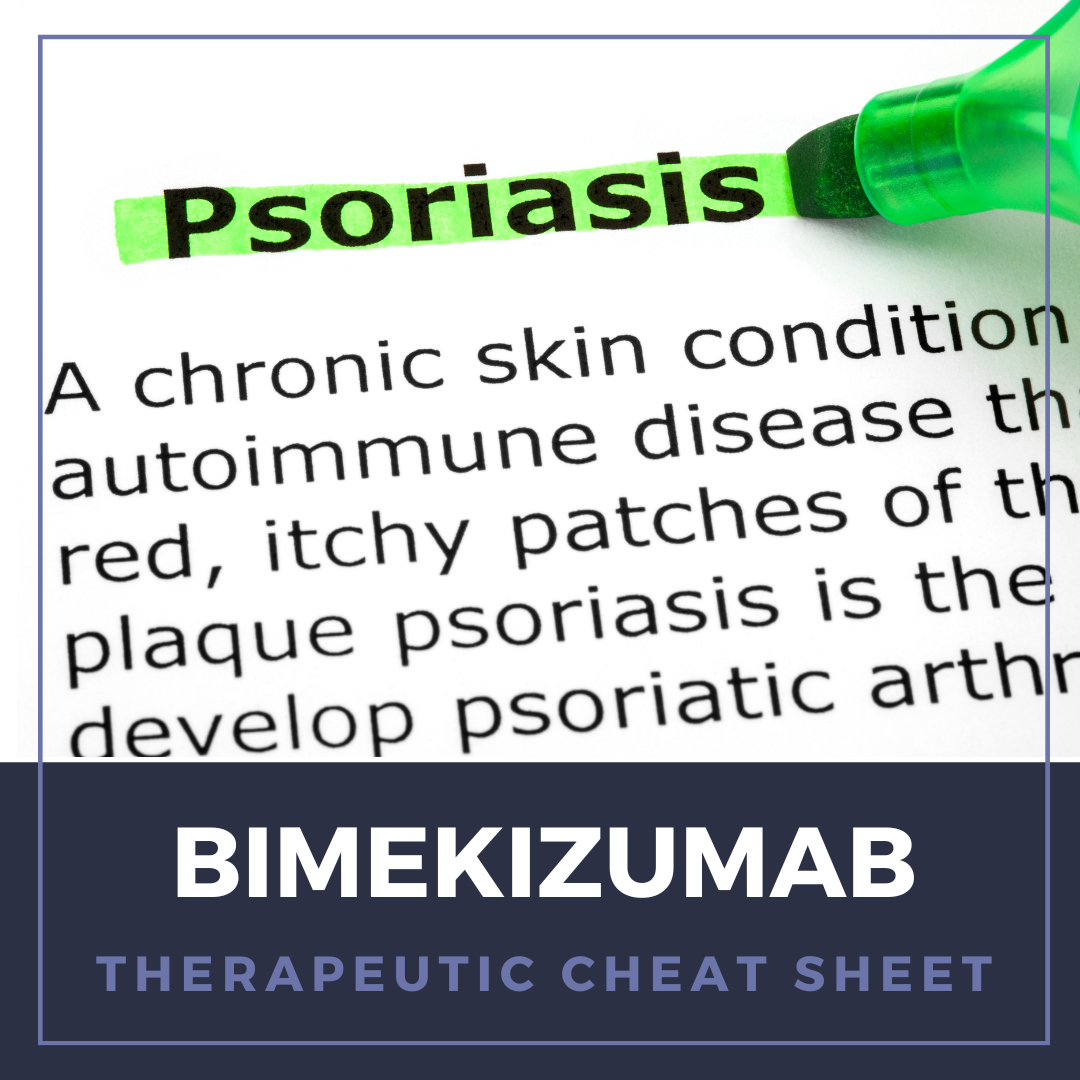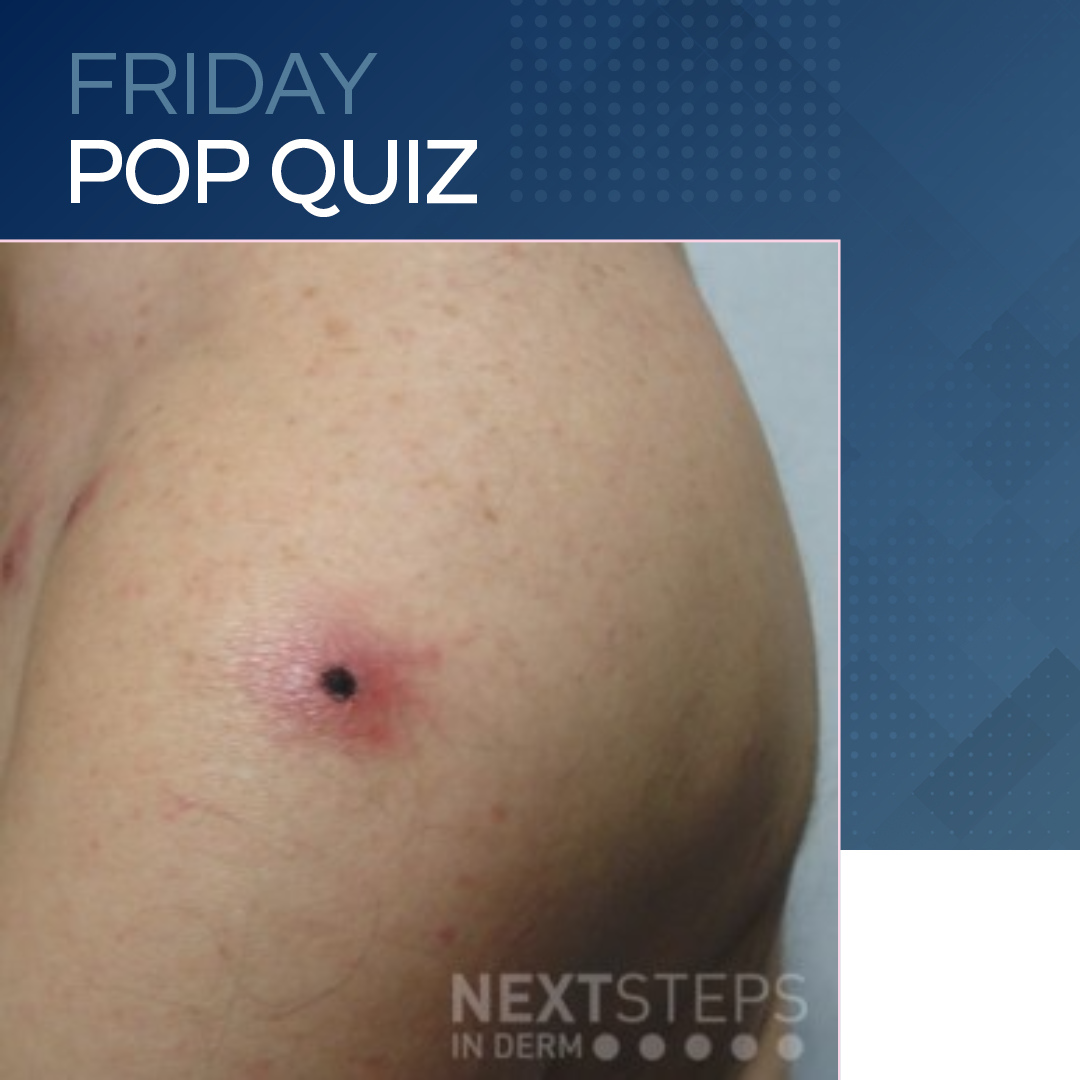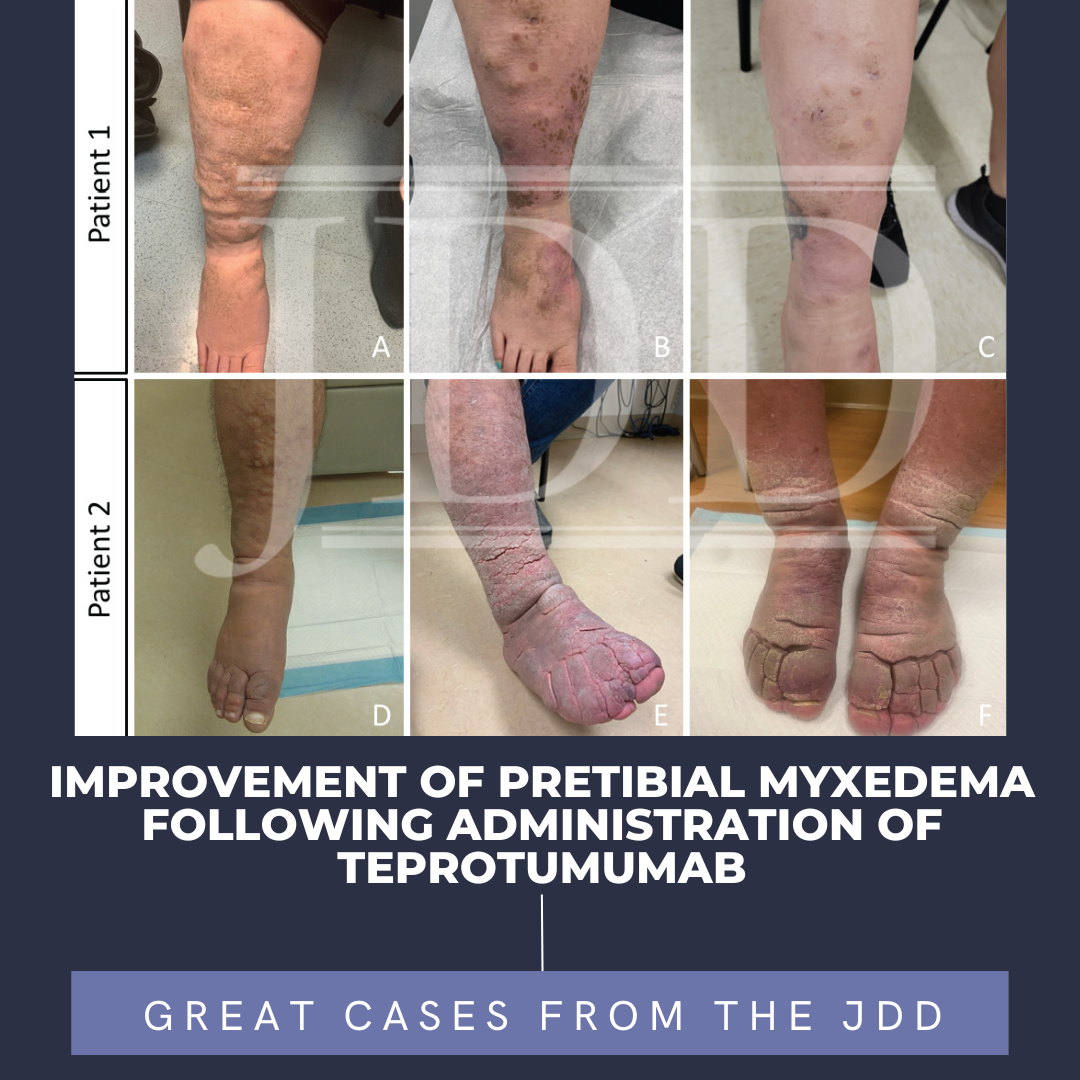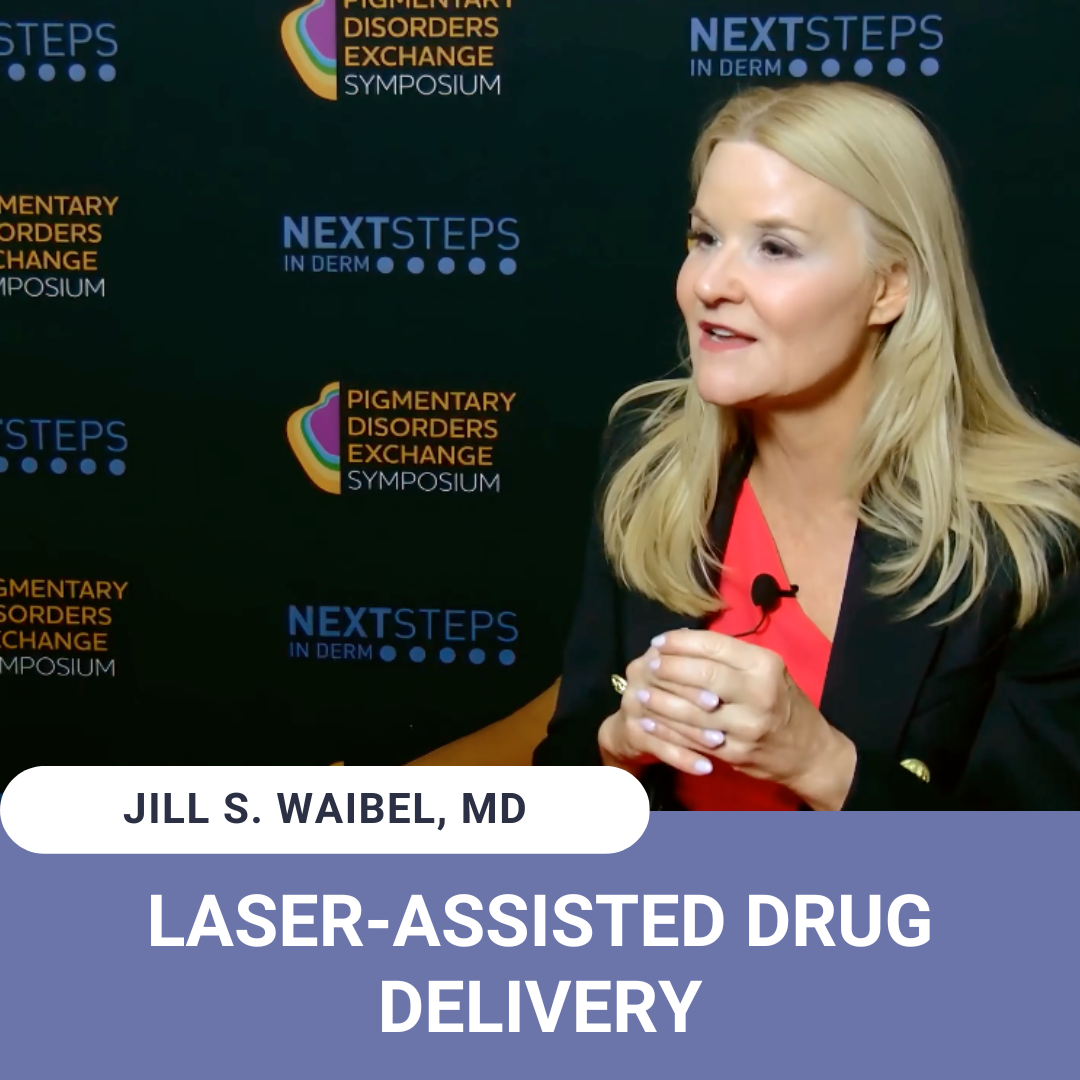Bimekizumab-bkzx Therapeutic Cheat Sheet
 Bimekizumab (Bimzelx®) is a new injectable medication FDA approved for plaque psoriasis. It is the first and only FDA approved IL-17A and IL-17F inhibitor for this disease, but is also being used as an off-label option for other conditions including psoriatic arthritis and hidradenitis suppurativa. This Therapeutic Cheat Sheet will focus on the on and off label uses of bimekizumab.
Bimekizuma …
Bimekizumab (Bimzelx®) is a new injectable medication FDA approved for plaque psoriasis. It is the first and only FDA approved IL-17A and IL-17F inhibitor for this disease, but is also being used as an off-label option for other conditions including psoriatic arthritis and hidradenitis suppurativa. This Therapeutic Cheat Sheet will focus on the on and off label uses of bimekizumab.
Bimekizuma …
 Bimekizumab (Bimzelx®) is a new injectable medication FDA approved for plaque psoriasis. It is the first and only FDA approved IL-17A and IL-17F inhibitor for this disease, but is also being used as an off-label option for other conditions including psoriatic arthritis and hidradenitis suppurativa. This Therapeutic Cheat Sheet will focus on the on and off label uses of bimekizumab.
Bimekizuma …
Bimekizumab (Bimzelx®) is a new injectable medication FDA approved for plaque psoriasis. It is the first and only FDA approved IL-17A and IL-17F inhibitor for this disease, but is also being used as an off-label option for other conditions including psoriatic arthritis and hidradenitis suppurativa. This Therapeutic Cheat Sheet will focus on the on and off label uses of bimekizumab.
Bimekizuma … 

 Media attention about oral minoxidil has impacted access to the hair loss drug in the Washington, D.C. area, according to a study published in the January issue of the Journal of Drugs in Dermatology. Researchers found shortages of the drug in D.C.-area pharmacies more than a year after an article about the treatment appeared in The New York Times.
To find out more about oral minoxidil access, …
Media attention about oral minoxidil has impacted access to the hair loss drug in the Washington, D.C. area, according to a study published in the January issue of the Journal of Drugs in Dermatology. Researchers found shortages of the drug in D.C.-area pharmacies more than a year after an article about the treatment appeared in The New York Times.
To find out more about oral minoxidil access, …  A 34-year-old man with no past medical conditions presents with lesions as shown. Of the following, what is the most likely causative agent?
A. Aspergillus flavus
B. Group A beta-hemolytic streptococci
C. Pseudomonas aeruginosa
D. Klebsiella
E. Proteus
To find out the correct answer and read the explanation, click here. …
A 34-year-old man with no past medical conditions presents with lesions as shown. Of the following, what is the most likely causative agent?
A. Aspergillus flavus
B. Group A beta-hemolytic streptococci
C. Pseudomonas aeruginosa
D. Klebsiella
E. Proteus
To find out the correct answer and read the explanation, click here. …  Pretibial myxedema (PTM) is a rare complication of Graves' disease. It is characterized by non-pitting edema with hyperpigmented hyperkeratotic papules and plaques on bilateral lower legs. Effective treatments for patients with PTM are lacking. The etiology of PTM is unknown; however, it may be similar to the mechanism of thyroid-associated ophthalmopathy (TAO). Activated fibroblasts produce infla …
Pretibial myxedema (PTM) is a rare complication of Graves' disease. It is characterized by non-pitting edema with hyperpigmented hyperkeratotic papules and plaques on bilateral lower legs. Effective treatments for patients with PTM are lacking. The etiology of PTM is unknown; however, it may be similar to the mechanism of thyroid-associated ophthalmopathy (TAO). Activated fibroblasts produce infla …  Next Steps in Derm, in partnership with Pigmentary Disorders Exchange Symposium interviewed Dr. Jill S. Waibel, subsection chief of dermatology at Baptist Hospital of Miami, medical director of the Miami Cancer Institute’s Multispecialty Skin Cancer Clinic, and assistant voluntary professor at the University of Miami Miller School of Medicine. Learn about the emerging field of laser-assisted dru …
Next Steps in Derm, in partnership with Pigmentary Disorders Exchange Symposium interviewed Dr. Jill S. Waibel, subsection chief of dermatology at Baptist Hospital of Miami, medical director of the Miami Cancer Institute’s Multispecialty Skin Cancer Clinic, and assistant voluntary professor at the University of Miami Miller School of Medicine. Learn about the emerging field of laser-assisted dru …